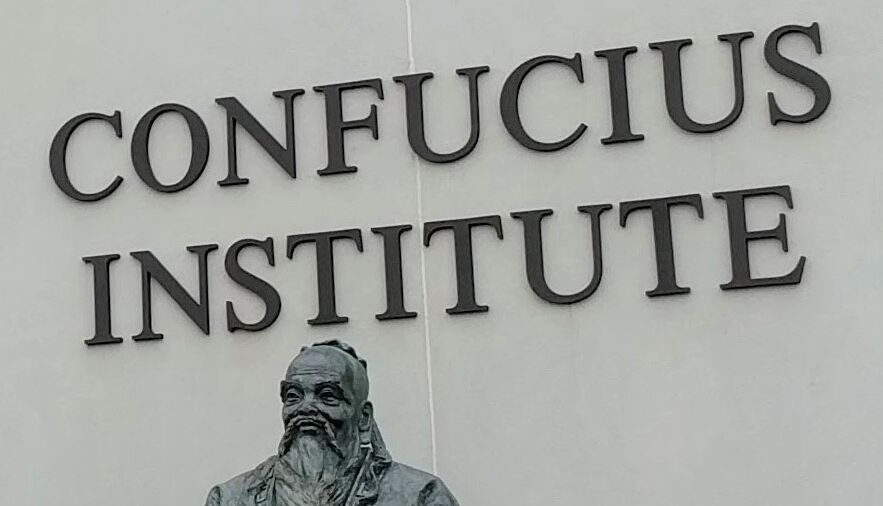The U.S. government has taken several steps in recent years to root out a China-backed program suspected of promoting Chinese Communist Party (CCP) ideology in the U.S. education system, but Rep. Michelle Steel (R-Calif.) says this program has proven elusive.
Known as the Confucius Institute, this program is organized under the CCPs Ministry of Education. While ostensibly organized to promote Chinese language learning and cultural exchange abroad, the Confucius Institute has faced accusations of steering curriculums away from discussions of China’s human rights record and other topics disfavored by the CCP.
“The Confucius Institute was the CCP’s propaganda,” Ms. Steel said in an interview with NTD’s “Capitol Report” on Friday. “We had over 200 universities that had [a Confucius Institute], and the CCP was actually spreading [its] propaganda to our students.”
In August of 2020, the Trump-era State Department designated the Confucius Institute as a foreign mission of the Chinese regime. Congress further disincentivized educational institutions from partnering with the Confucius Institute, adding a provision in the 2021 National Defense Authorization Act that bars the Department of Defense from providing funding to higher education institutions that host Confucius Institutes.
Amid this pressure, many universities have cut official ties with the Confucius Institute program. But Ms. Steel said many of the Confucius Institute’s offices have simply rebranded to further obscure their ties to the CCP.
Ms. Steel’s plan to keep pressuring U.S. education institutions to cut ties with the Confucius Institute program is to revise the foreign gift reporting requirements for all U.S. colleges and universities.
Currently, higher learning institutions in the United States must report any foreign gifts worth about $250,000. Ms. Steel and Rep. Virginia Foxx (R-N.C.) are currently advancing a bill that would reduce that reporting threshold to $50,000 for gifts to colleges and universities from most foreign entities. The bill would require an even stricter standard for gifts from designated countries of concern, requiring reporting for any dollar amount U.S. colleges and universities receive from those countries. That list of countries would include China as well as Russia, Iran, and North Korea.
“These foreign countries—especially like China, Iran, and Russia, North Korea—when they give you something, they want to take back something,” Ms. Steel said. “There is no such thing as a free lunch, right?”
Ms. Steel’s bill passed in the House Education and Workforce Committee on Wednesday and she believes her legislation will attract bipartisan support moving forward.
Qatar’s Influence on Universities Also Concerning: Steel
Ms. Steel said Qatar is another country whose influence within U.S. education institutions increasingly concerns her, particularly in light of the ongoing Israel–Hamas conflict.
According to a 2022 study from the National Association of Scholars (NAS), Qatar donated at least $4.7 billion to American universities between 2001 and 2021, making the country currently the largest foreign source of donations to American universities. According to the NAS report, some of this Qatari funding has helped to advance support for Iran, the Muslim Brotherhood, and terrorist groups like Hamas.
Hamas also maintains office space in the Qatari capital city of Doha.
“They are pro-Hamas and, you know, pro-terrorist, and they are actually spreading [this propaganda],” Ms. Steel said of the Qatari donors, adding that Americans have an “obligation, we have a right to protect our own students from all these foreign influences.”
Ms. Steel shared her concerns about Qatari influence as pro-Israel and pro-Palestinian groups have staged numerous dueling protest events at U.S. universities in the days and weeks after Hamas terrorists launched their Oct. 7 surprise attack on Israel. Several colleges, including Cornell and Harvard, have had to respond to reports of anti-Semitic incidents and threats made against their Jewish students, and some pro-Palestinian campus activists have been accused of openly supporting Hamas.


